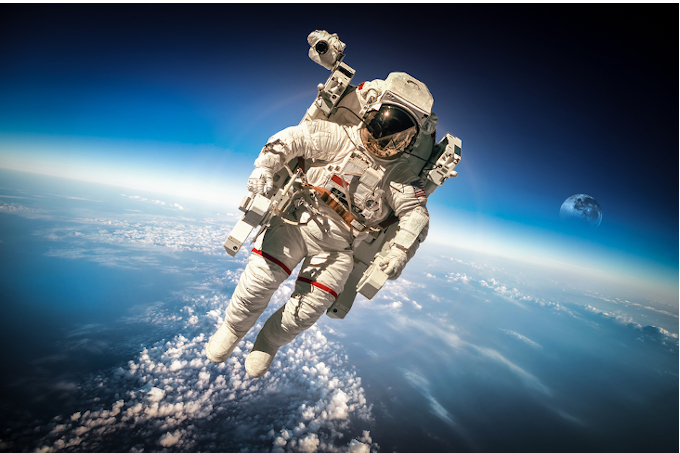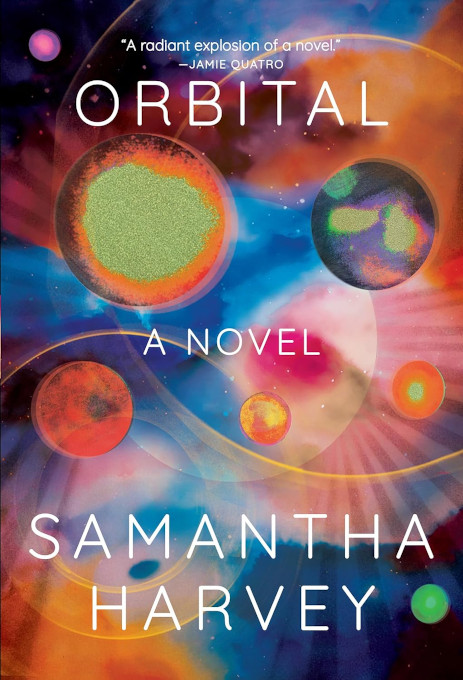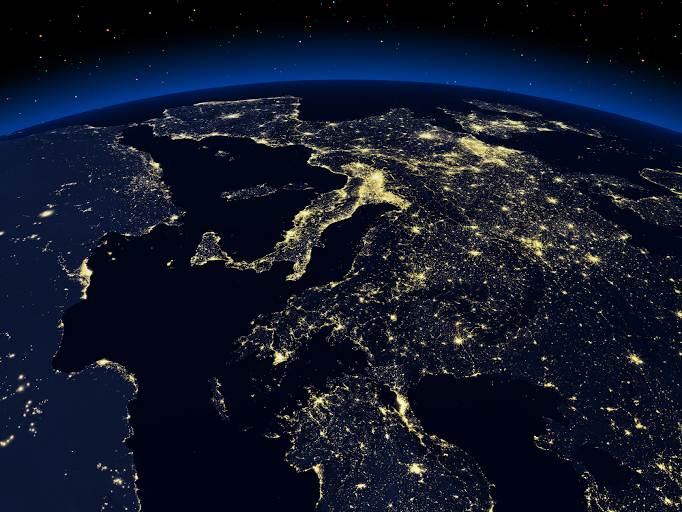Traveling Through Space at Lightning Speed in Samantha Harvey’s ‘Orbital’

Orbital: A Novel
By Samantha Harvey
Grove Press
207 pages
In Samantha Harvey’s extraordinary new novel, Orbital, six men and women aboard the International Space Station—four astronauts and two cosmonauts—travel through space at 17,500 miles an hour.
Over the course of a single day, encompassing 16 orbits some 250 miles above the Earth, the crew aboard the ISS conducts experiments, works out, and tracks a monster typhoon headed for the Philippines. Each crew member in their own way is awestruck by the view beyond the spacecraft windows of “that glassy, distant orb with its beautiful lonely light shows.”
Not surprisingly, most of these space travelers suffer fits of yearning for what’s been left behind:

“Sometimes they wish for a cold stiff wind, blustery rain, autumn leaves, reddened fingers, muddy legs, a curious dog, a startled rabbit, a leaping sudden deer, a puddle in a pothole, soaked feet, a slight hill, a fellow runner, a shaft of sun. Sometimes they just succumb to the uneventful windless humming of their sealed spacecraft.”
Nothing much happens in Orbital (if you call a small clutch of humanity suspended in zero-gravity hundreds of miles above its home planet “nothing much”). But it’s soon apparent that, for Harvey, plot is pretty much beside the point. Far more interesting to her is an understanding of what life feels like aboard a metal-encased device orbiting Earth. For example, Chie, a Japanese astronaut, learns of her mother’s death but maintains an otherworldly denial of it (“If she could stay in orbit for the rest of her life, all would be well.”)
At times crew members engage in philosophical discussions, where fundamental questions are asked. What does it mean for our planet to be—presumably—the only one to sustain life in this galaxy and galaxies beyond? What does it mean if we’re not the only such life-form?

Harvey also brilliantly captures the air of camaraderie these men and women depend upon to survive:
“There is that idea of a floating family, but in some ways they’re not really a family at all—they’re both much more and much less than that. They’re everything to each other because they’re all there is.”
Throughout this brief novel, the narrative slides smoothly between a collective voice to individual characters’ points-of-view and backstories. The language itself takes on a floating quality that mimics (in the best ways) the weightlessness of space.

P
art of the fun of reading Orbital is going along for the ride. In the case of the ISS, this involves circumnavigating high above cities, continents, and vast bodies of water:
“In the new morning of today’s fourth earth orbit, the Saharan dust sweeps to the sea in hundred-mile ribbons … Gran Canaria’s steep radial gorges pile the island up like a sandcastle hastily built, and when the Atlas Mountains announce the end of the desert, clouds appear in the shape of a shark whose tail flips at the southern coast of Spain, whose fin-tip nudges the southern Alps, whose nose will dive any moment into the Mediterranean. Albania and Montenegro are velvet soft with mountains.”
With its radiant prose and lyrical storytelling, Orbital achieves something rarely found in books, film, or other media. This novel makes you look at the world, and our place in it, in a new way.
Author Bio:
Highbrow Magazine’s chief book critic Lee Polevoi is the author of the novel The Confessions of Gabriel Ash.
For Highbrow Magazine































































































































































































































































































































